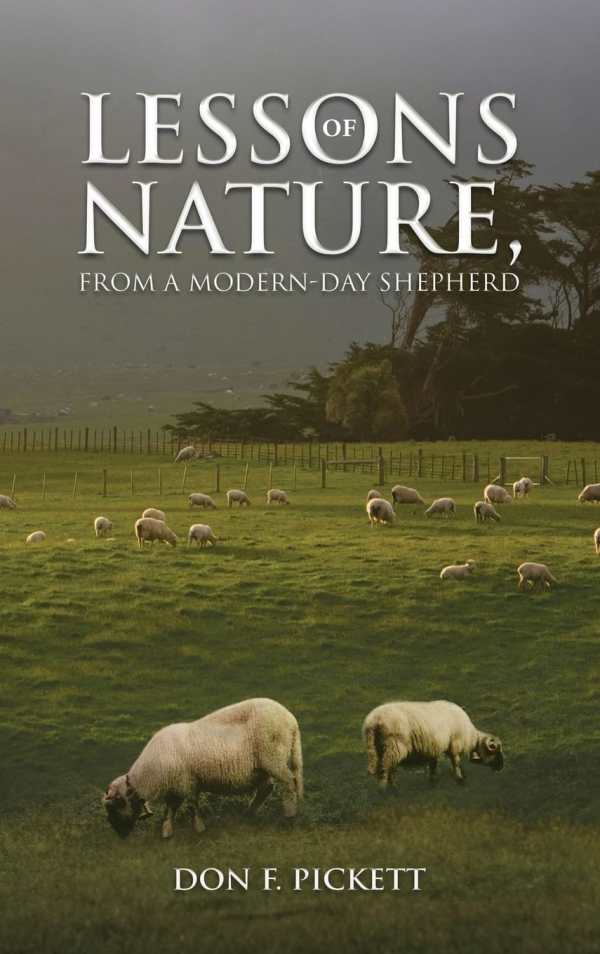
Lessons of Nature, from a Modern-Day Shepherd
The personal religious musings collected in Lessons of Nature, from a Modern-Day Shepherd promote mindful attention to the natural world.
The essays and poems of Idaho rancher Don F. Pickett’s religious collection Lessons of Nature, from a Modern-Day Shepherd cover the beauty and order of the earth.
Throughout its meandering chapters, this book blends personal ruminations with applied logic to explore what it means to be a human being. Its presumption is that people are endowed with immortal spirits—spirits challenged by the modern world, which it claims has lost touch with nature’s teachings. Undergirded by faith, its pages juxtapose the mindful lifestyle of a shepherd to contemporary distractions. They take a forceful stance against unnatural social demands and interruptive technology.
Indeed, the book’s perspective is that technological devices are unreliable, particularly in comparison to the rules of nature. Its uses familiar examples to champion natural stability, as of the the tides going out and coming in and of the North Star as a guiding constant. It also explores natural law versus “positive” law, particularly in relation to the US judicial system. However, multiple scientific statements made herein are outdated or inaccurate, undercutting the book’s authority, as when it declares that matter “cannot be created nor destroyed,” when energy is the correct subject.
Throughout the book, biblical quotes, stories, and references are incorporated in support of Pickett’s comforting musings. For example, in highlighting the role of biblical shepherds in God’s plans, the book points to David, a shepherd who became the king of Israel. It also celebrates the shepherds who were the first people to receive notice of the birth of Jesus. Further, Jesus’s comparison of his mission with that of a shepherd is highlighted. Such commonplace images become the book’s binding thread.
Each chapter begins with a contemplative poem—often appearing in formal four-line stanzas and featuring forced, jaunty rhymes. There are off-putting images in their lines, though, that impede their delivery, as in the opening poem “A Shepherd’s Vision”:
A spiritual diarrhea
can certainly be our plight
but urea is urea
it ruins God’s appetite.
Malapropisms and misspelled words undermine the book further. William Wordsworth’s poem “Ode: Intimations of Immortality” is erroneously rendered as “Imitations of Immortality.”
The personal religious musings collected in Lessons of Nature, from a Modern-Day Shepherd promote mindful attention to the natural world, suggesting that humanity’s true home is to be found in God.
Reviewed by
Kristine Morris
Disclosure: This article is not an endorsement, but a review. The publisher of this book provided free copies of the book and paid a small fee to have their book reviewed by a professional reviewer. Foreword Reviews and Clarion Reviews make no guarantee that the publisher will receive a positive review. Foreword Magazine, Inc. is disclosing this in accordance with the Federal Trade Commission’s 16 CFR, Part 255.
